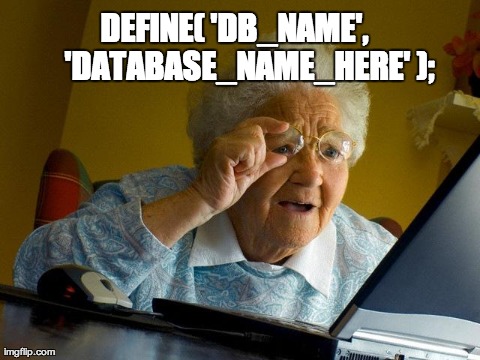
Is WooCommerce free to use?
Is WooCommerce truly free of cost? What’s the catch? What do you need to know before you decide to use it for your online store? Many prospective e-commerce entrepreneurs harbor these questions when considering platforms for setting up their online ventures. As digital commerce becomes an increasingly important concern in today’s business landscape, the choice of an e-commerce platform emerges as a crucial decision, especially for small businesses on a budget.
According to studies, more than 62% of U.S. small businesses reported that they felt the impact of hidden costs when using ‘free’ e-commerce platforms (Yale University, 2020). The Harvard Business Review (2020), also highlighted the challenge of extra expenses with supposedly free platforms, leading to significant budget overruns for these businesses. Recognizing the reality of these issues creates an opportunity for a thoughtful examination of WooCommerce’s proclaimed free status. And understanding these problems also makes the rationale for exploring and outlining potential solutions increasingly critical, informed by focused surveys on this subject conducted in the U.S.
In this article, you will learn about the complex panorama of WooCommerce’s pricing model. You will unlock the understanding of why it is referred to as a ‘free’ platform and what costs emerge as businesses start using its services. Solutions to budget overruns associated with these unseen expenses will be put under the microscope, with actionable insights aiming to arm entrepreneurs with the right knowledge.
The article aims to enlighten readers on the true costs of WooCommerce, the significance of these costs for small businesses, and the strategies for planning a budget that includes this platform. With this knowledge, businesses can potentially avoid the unwelcome surprises and challenges often reported by WooCommerce users. Adding awareness about the cost implications of WooCommerce to your entrepreneurial toolset could be the tweak to optimize your e-commerce success.
![]()
Basic Definitions and Understanding of WooCommerce
WooCommerce is an open-source e-commerce plugin for WordPress. Open-source software is freely accessible and can be redistributed and modified. This implies that WooCommerce is free to use and adapt as per your business needs, although you’ll wind up paying for hosting, security, and premium plugins to make your e-commerce store run smoothly.
WordPress is a free and open-source content management system (CMS). It enables you to build and maintain a website without understanding how to code. WooCommerce is a WordPress plugin, meaning it’s a piece of software that can be added to your WordPress website, enhancing its functionality and enabling you to run an online store.
Unraveling the Myth: The Real Cost of ‘Free’ WooCommerce;
Understanding WooCommerce’s “Free” Offering
WooCommerce is marketed as a “free” e-commerce platform, which is technically true; the basic WooCommerce plugin is available for free download directly from the WordPress repository. This means that any WordPress user can install it on their site and set up an online store without any initial financial outlay. But like many things in life, ‘free’ does not necessarily equate to ‘without cost.’ Often, it’s the opposite.
Downloading and installing the core WooCommerce plugin won’t cost you a dime. However, as your store grows in scale and complexity, you’ll soon discover that you might need more features, such as additional payment gateways, shipping calculators, or marketing integrations. These features are not included in the core plugin but can be added via extensions – many of which carry their own price tags.
Necessary Costs Tied to Using WooCommerce
So, you might be wondering, what are some of necessary expenditures with WooCommerce? Here’s a brief list:
- Hosting: Unlike other ‘all-in-one’ e-commerce platforms, WooCommerce is self-hosted. So, you’ll need to pay for your own web hosting. The cost varies depending on the provider and plan you choose, but it’s an ongoing cost that can’t be ignored.
- Premium Themes: While WooCommerce will work with any WordPress theme, for the best visitor experience, a theme designed specifically for WooCommerce is recommended. There are free WooCommerce themes available, but premium themes often provide increased functionality and superior aesthetics.
- Extensions & Plugins: As touched on earlier, to expand WooCommerce’s core functionality, you’ll need to purchase additional plugins and extensions. The cost can add up quickly, especially if you’re looking for unique functionalities.
- Professional Services: If you’re not a tech whizz, you might need to hire a developer or designer to customize your online store. Plus, professional help might be necessary for maintenance, updates, and scaling in the future.
All the above elements contribute to the overall cost of running a WooCommerce store. Even if you decide to boot up a stripped-down, bare-bones store using completely free options, you’ll still need to assume the costs of hosting and possibly a domain name. In the world of e-commerce, WooCommerce can be thought of more like a ‘freemium’ product rather than an entirely free one. It lures users in with the prospect of starting a free online store, but as your business and needs grow, you’ll eventually find the free offering somewhat limiting.
Remember, every business has different needs. For some, the costs associated with WooCommerce are worth it for the flexibility and control provided by a WordPress-based e-commerce platform. For others, a different platform may make financial sense. Take time to consider your specific needs and evaluate WooCommerce based on those.
Your eCommerce Dream or Nightmare? Unmasking the Hidden Costs of WooCommerce;
Unpacking the Truth: The Real Cost of WooCommerce
Is it really possible to operate an e-commerce site completely free of charge? Upon first interaction, WooCommerce lures enthusiastic entrepreneurs with the promise of a gratis platform to facilitate online business. However, diving deeper into the nitty-gritty, it is apparent that WooCommerce isn’t entirely cost-free as initially advertised. The WooCommerce plugin can indeed be downloaded and installed free of charge. Plus, it doesn’t have a monthly subscription, unlike many e-commerce platforms. Nevertheless, while the core software is free, it does not come equipped with all the features needed to run a successful, feature-rich online store. It is here that the hidden expenses start to creep in leading to an increase in operational costs.
The Hidden Blueprints: Unraveling the Core Issue
Primarily, WooCommerce is an open-source WordPress plugin, which means the code is freely available for people to manipulate as they please. While this gives a certain flexibility to customize your store just the way you want it, it also means that you will need to host your website yourself, a service for which you will have to pay. Consequently, the costs continue to mount the moment you start adding extensions to your website for fundamental elements like shipping options, online payments, security, and SEO tools, among other upgrades. Although WooCommerce offers several free extensions, the ones that offer broader functionalities and improved customer experience like premium extensions often come with a one-time fee, monthly charge or yearly subscription. So, while WooCommerce is free at its very core, the auxiliary requirements necessary to run a competent e-commerce store draw out costs that are often hidden at first glance.
The Roadmap to Success: Effective Strategies to Lower Costs
Given the cost elements of WooCommerce, it becomes essential to devise a cost-effective strategy to run a successful e-commerce store. Opting for affordable yet dependable hosting services can significantly reduce overhead costs. Additionally, making judicious decisions when selecting extensions can effectively keep the costs down. A vast number of free extensions offer decent functionalities and can serve the requirements of a basic e-commerce store. Paid extensions should be considered as investments that should ideally enhance sales or improve operational efficiencies. Moreover, since WooCommerce is open-source and built on WordPress, an abundance of economical professional services are available to aid in anything from site setup to server management to site design. Lastly, educating oneself about WooCommerce’s intricacies can save money that might otherwise be spent on hiring experts. Thus, while costs are an inevitable part of operating an e-commerce store with WooCommerce, with the right strategies, they can be efficiently managed.
Free Forever or Just a Teaser? Revealing the Veiled Truth About the Cost of WooCommerce.
Is WooCommerce Truly Free?
The first thought that may cross your mind is – is WooCommerce truly free? Although its basic version is available at no charge, the story doesn’t end there. The crux of the issue revolves around the not just the upfront costs, but the hidden fees that can pile up as your online store grows. The WooCommerce platform is indeed free to download, install, and update. However, if we examine closely, the vital components like hosting, domain name, security, extensions, themes, and professional assistance all bear associated costs. And they are pretty hefty, to say the least.
The Core Issue with Using WooCommerce
Diving into the root of the problem, it becomes evident that the unlimited freedom offered by WooCommerce is a double-edged sword. While it provides countless options for customization, making it suitable for businesses of all sizes and types, it also means more decisions, more complexity, and more costs. Security and payment gateway integrations involve recurring charges. Then comes the price tag on premium themes vital for enhancing your store’s aesthetics and user experience. Need add-on features like booking, shipping, or subscription? Oops, they are not available for free either! Plus, the cost of hiring a developer for setting up, customizing, or troubleshooting cannot be overlooked. So, a tool touted as free eventually points to a larger, worrisome financial commitment.
Smarter Ways to Use WooCommerce
Zoning in on smarter ways to utilize WooCommerce for your business, avoids these issues. Firstly, choose your hosting provider wisely. They should not only resonate with your budget but also meet your needs for speed and reliability. Secondly, starting with a basic and free theme enables you to get a feel of the platform with minimal investment. As you start making money from the business, investing in a premium theme that suits your brand becomes an informed step rather than an upfront cost. For add-on features, search for free alternatives first. Expensive is not always better. Free versions, though limited in capabilities, might suffice in getting the job done initially. As your business expands, you can strategically decide which premium extensions or plugins to purchase based on their return on investment for your store. While it’s true that a professional developer can enhance your WooCommerce store, starting with the basics yourself is not a bad idea either. With a multitude of tutorials and forums available, self-learning has never been easier.
Conclusion
Have you ever considered the real cost of utilizing ‘free’ platforms for your e-commerce needs? While on the surface it might seem that WooCommerce is free to use, the perception could be different when you delve deeper into its operational aspects. Yes, it is true that you can download and install the WooCommerce plugin at no cost. However, this ‘free’ version provides a fundamental structure. If you need an advanced customization to match your unique business requirements, you will need to purchase premium themes, extensions, and plugins, which certainly come at a cost. Moreover, you also need to account for expenses related to hosting, security, and maintenance of your WooCommerce store.
Thank you dear readers, as you continue to strive in your e-commerce journey, your insights and feedback are valuable to us. Your loyalty to this blog is incredibly appreciated and we encourage you to remain an active part of our community. Each week, we strive to bring you the most relevant information, exploring various topics in the e-commerce industry. We hope that our insights help you build a robust online business. We’re constantly researching and staying up-to-date with trends and changes in the field.
To ensure you stay in the loop with our latest releases, we implore you to subscribe to our blog, where we shall continuously explore crucial e-commerce topics. Remember, in the ever-dynamic world of online business, information is the key to success. Stay connected, and keep anticipating more enlightening topics. We assure you, our forthcoming articles are poised to provide more comprehensive insight into how you can navigate the nuances of the e-commerce waters and thrive in your online endeavors. We’ll plunge into more potent subjects to ensure you acquire the right knowledge to make your online venture a success story.
F.A.Q.
FAQ
Q1: Is there any cost attached to using WooCommerce?
A: WooCommerce is completely free to install and use. However, there may be costs associated with premium themes, extensions and third-party services you might want to add.
Q2: What additional costs might I incur when using WooCommerce?
A: While the basic WooCommerce plugin is free, you might incur costs while customizing your store with premium plugins, extensions and themes. Hosting and domain name costs are some other auxiliary expenses.
Q3: Can I sell any type of product using WooCommerce?
A: Yes, WooCommerce allows you to sell both physical and digital products. It also benefits retailers offering affiliate or external products.
Q4: Is WooCommerce only for WordPress?
A: Yes, WooCommerce is a plugin specifically designed for WordPress websites. It integrates seamlessly into WordPress, allowing your site to become a fully functional e-commerce platform.
Q5: Is it necessary to have coding knowledge to use WooCommerce?
A: While having coding knowledge might benefit customizing your store, it is not necessary. WooCommerce is designed to be user-friendly and it allows you to set up and manage your store without requiring coding skills.

